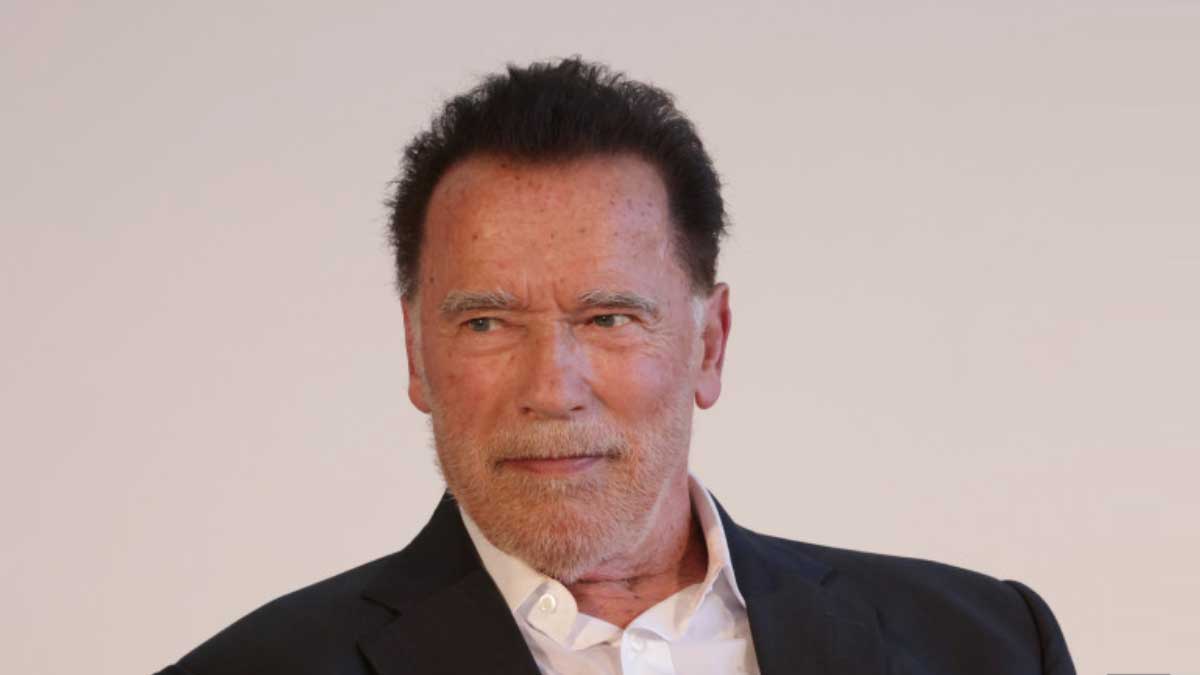- Home
- Billionaires
- Investing Newsletters
- 193CC 1000
- Article Layout 2
- Article Layout 3
- Article Layout 4
- Article Layout 5
- Article Layout 6
- Article Layout 7
- Article Layout 8
- Article Layout 9
- Article Layout 10
- Article Layout 11
- Article Layout 12
- Article Layout 13
- Article Layout 14
- Article Sidebar
- Post Format
- pages
- Archive Layouts
- Post Gallery
- Post Video Background
- Post Review
- Sponsored Post
- Leadership
- Business
- Money
- Small Business
- Innovation
- Shop
Recent Posts
Schwarzenegger Joins Republicans Endorsing Harris Over Trump

Former California Governor Arnold Schwarzenegger publicly endorsed Vice President Kamala Harris and Minnesota Governor Tim Walz for the upcoming presidential election, joining a growing list of prominent Republicans crossing party lines. Schwarzenegger, who governed California as a Republican from 2003 to 2011, expressed his support on social media, stating, “I will always be an American before I am a Republican” and calling election denial “as un-American as it gets.” Schwarzenegger’s stance aligns him with other well-known figures in the GOP who have voiced concerns over the direction of their party under former President Donald Trump.
Several high-profile Republicans from diverse backgrounds have voiced similar concerns, stating that Trump’s influence poses a significant threat to national stability and democratic norms. On Tuesday, former New Hampshire officials—Attorney General Tom Rath and U.S. Senator Gordon Humphrey—publicly announced their support for Harris. Humphrey, who said he’d voted Republican for over 50 years, declared Trump “a threat to safety, peace, democracy, and freedom.” Rath echoed this sentiment, calling this election an “overstep of partisan boundaries.” Similarly, former Congressman Fred Upton, a Michigan Republican, explained he had already cast his vote for Harris, saying that Trump’s behavior was “unhinged” and that Harris’s potential to unify the country guided his decision.
In a similar stance, Wisconsin state Senator Robert Cowles, a long-serving Republican, labeled Trump a “totalitarian” and “fascist” in an interview, adding that while he doesn’t align with all Harris’s policies, defeating Trump is essential. On October 23, Shawn Reilly, the Republican mayor of Waukesha, Wisconsin, also endorsed Harris, clarifying that his vote is a “vote against Trump” and that the nation cannot afford “an impeached, twice-convicted felon” as its leader. Reilly’s comments underline a trend where Republicans, especially in swing states, fear Trump’s return could harm democratic values.
Jeff Flake, the former Arizona Senator and recent U.S. ambassador to Turkey, expressed similar concerns. In a social media statement, he commended Harris’s dedication to the rule of law, contrasting it with Trump’s alleged disregard for democratic principles. His support joins that of over 100 former Republican officials and national security experts, including alumni from the Reagan, Bush, McCain, and Romney administrations, who backed Harris on September 18. This group issued a statement denouncing Trump’s behavior on January 6, 2021, and questioning his national security record.
Notably, some Republican figures from the George W. Bush administration also endorsed Harris. Alberto Gonzales, former attorney general under President Bush, stated in an op-ed that Trump represents the greatest “threat to the rule of law in a generation.” Similarly, former Vice President Dick Cheney described Trump as a “threat to our republic” in a statement supporting Harris. Cheney’s daughter, former Representative Liz Cheney, also declared her intention to vote for Harris, citing Trump’s threats to democracy as her motivation.
Members of the late Senator John McCain’s family have also taken a stand against Trump. Jimmy McCain, Senator McCain’s son, changed his voter registration to Democrat and publicly supported Harris, citing Trump’s disrespect during a visit to Arlington National Cemetery, where a Trump staffer allegedly clashed with a cemetery employee.
Former Congressman Adam Kinzinger, a notable critic of Trump within the GOP, spoke at the Democratic National Convention (DNC) and urged Americans to support Harris. Other former Republicans, including former Lieutenant Governor of Georgia Geoff Duncan, also made their support for Harris known at the DNC. Duncan emphasized to his GOP colleagues that voting for Harris is an act of patriotism, not partisanship. Stephanie Grisham, who served briefly as Trump’s White House press secretary, used her platform at the DNC to endorse Harris, asserting that Harris “respects the American people” while condemning Trump for lacking empathy and moral integrity.
In Arizona, Republican Mayor John Giles of Mesa also voiced his support for Harris, arguing that the GOP has been “hijacked by extremists” and that any genuine Republican should reject a candidate who disrespects democratic values. Former Virginia Representative Barbara Comstock shared similar sentiments on CNN, citing Trump’s handling of the January 6 events and his persistent refusal to concede his 2020 loss as dangerous and incompatible with democracy.
Several other prominent former Republican officials and government figures joined this bipartisan shift. Denver Riggleman, a former Virginia congressman, criticized Trump’s pursuit of “power, revenge, and retribution” as his primary motivation. Riggleman even went so far as to avoid voting for any Republicans in the current election cycle. Former Trump communications director Anthony Scaramucci also endorsed Harris in July, saying he trusted her leadership capabilities and anticipated her policy positions.
While these prominent Republicans have endorsed Harris, a few former Trump officials have refrained from supporting either candidate directly. Former Trump Chief of Staff John Kelly recently described Trump as a fascist who “prefers a dictator approach to government.” Though Kelly did not endorse Harris, his comments reflected broader disapproval of Trump within his former administration. Additionally, Mike Pence, Trump’s former vice president, publicly stated that anyone who places themselves above the Constitution is unfit to serve as president. Other notable Republicans, including former Defense Secretary Mark Esper and former National Security Adviser John Bolton, have voiced similar concerns.
However, not all Republicans have aligned with Harris. Former President George W. Bush announced that he would not endorse a candidate in the election, having “retired from presidential politics years ago.” Utah Senator Mitt Romney, a frequent Trump critic, has similarly refrained from endorsing Harris, citing his desire to maintain a Republican voice in the party post-election.
The Harris-Trump race is expected to be closely contested, with polling showing Harris with a slight edge in several key swing states. After Biden stepped down from the race in July, Harris has quickly narrowed the gap Trump initially established after Biden’s lackluster debate performance. As of Thursday, Harris leads by 1.7 points nationally, according to FiveThirtyEight, while RealClearPolitics places her ahead by a slimmer 0.2-point margin.
The Trump campaign has downplayed these cross-party endorsements. Trump’s spokesperson Karoline Leavitt dismissed the Republican defectors as “disgruntled and deranged,” asserting that Trump still enjoys strong support within the GOP base and has outperformed past polls from 2016 and 2020. South Carolina Senator Lindsey Graham added his criticism of Republicans endorsing Harris, calling her “the most radical nominee in American political history” and suggesting that her policies, rather than Trump’s rhetoric, pose a greater danger to the nation.
Despite the growing number of Republicans supporting Harris, Trump has garnered support from some former Democrats, including Robert F. Kennedy Jr., who endorsed him in August, and former Hawaii Congresswoman Tulsi Gabbard, who also expressed support shortly afterward.
In a recent CNN interview, Harris hinted at a bipartisan approach, noting that she would consider appointing a Republican to her cabinet to unify the country, though she did not mention specific names. Past presidents, including George W. Bush, Bill Clinton, and Barack Obama, have appointed cabinet members from opposing parties, though Biden and Trump have not. This openness to bipartisanship could be a key strategy as Harris seeks to bridge the widening political divide.
Recent Posts
Categories
- 193 Countries Consortium Partner1
- 193cc Digital Assets2
- 5G1
- Aerospace & Defense48
- AI37
- Arts3
- Banking & Insurance11
- Big Data3
- Billionaires1,467
- Boats & Planes1
- Business332
- Careers13
- Cars & Bikes79
- CEO Network1
- CFO Network17
- CHRO Network1
- CIO Network1
- Cloud10
- CMO Network18
- Commercial Real Estate7
- Consultant1
- Consumer Tech194
- CxO1
- Cybersecurity73
- Dining1
- Diversity, Equity & Inclusion4
- Education7
- Energy8
- Enterprise Tech29
- Events11
- Fintech1
- Food & Drink2
- Franchises1
- Freelance1
- Future Of Work2
- Games149
- GIG1
- Healthcare79
- Hollywood & Entertainment203
- Houses1
- India’s 1000 Richest1
- Innovation46
- Investing2
- Investing Newsletters4
- Leadership65
- Lifestyle11
- Manufacturing1
- Markets20
- Media327
- Mobile phone1
- Money13
- Personal Finance2
- Policy569
- Real Estate1
- Research6
- Retail1
- Retirement1
- Small Business1
- SportsMoney42
- Style & Beauty1
- Success Income1
- Taxes2
- Travel10
- Uncategorized14
- Vices1
- Watches & Jewelry2
- world's billionaires1,436
- Worlds Richest Self-Made Women2
Related Articles
South Korea Plane Crash: A Tragic Loss and Global Mourning
The tragic plane crash at South Korea’s Muan International Airport on Sunday...
By 193cc Agency CouncilDecember 30, 2024H-1B Visa Debate Splits Trump Allies and Silicon Valley
The debate over H-1B visas has once again become a contentious issue,...
By 193cc Agency CouncilDecember 28, 2024Trump Moves $4B Stake in Truth Social Parent, Stock Drops 6%
Donald Trump recently transferred his 57% stake in Trump Media & Technology...
By 193cc Agency CouncilDecember 20, 2024House Rejects Trump-Backed Funding Bill, Shutdown Looms
The U.S. House of Representatives rejected a new government funding bill on...
By 193cc Agency CouncilDecember 20, 2024















Leave a comment